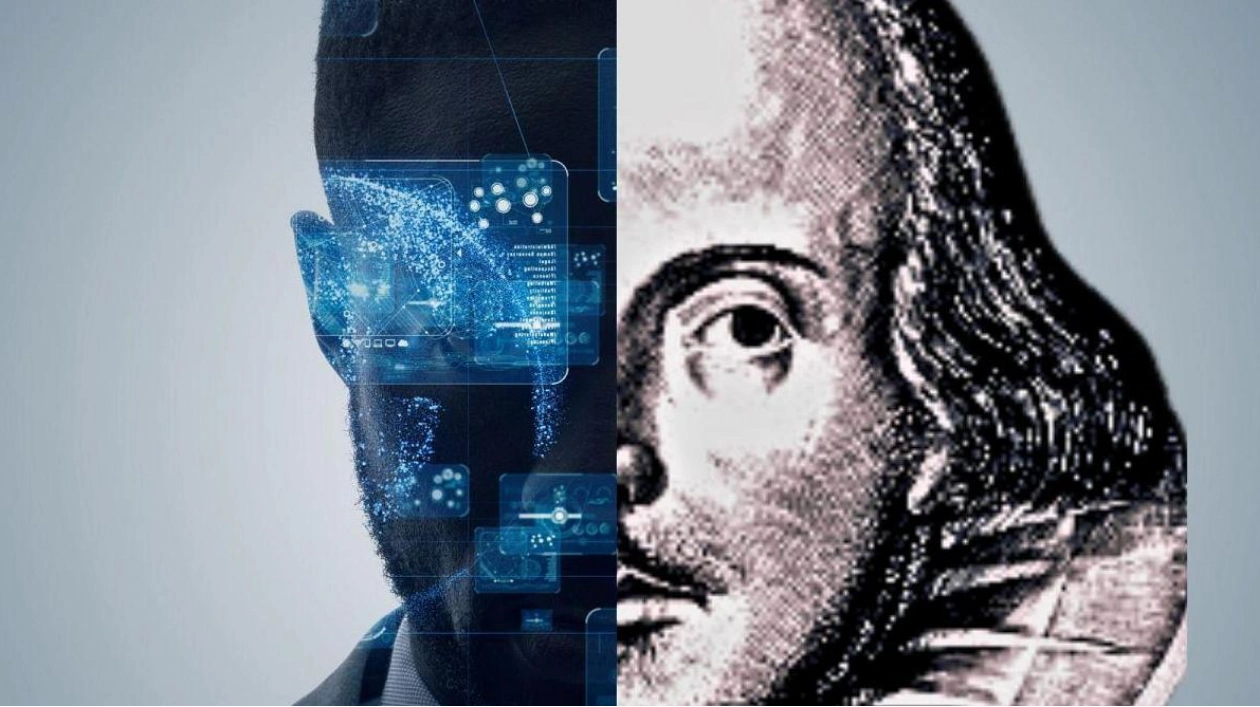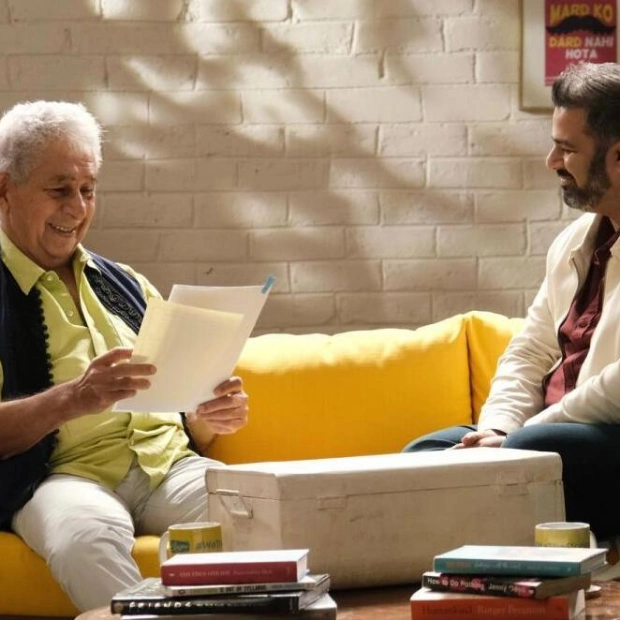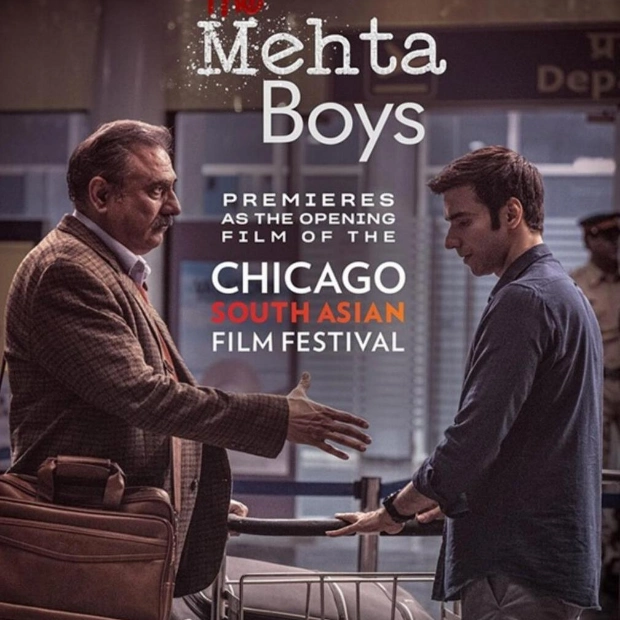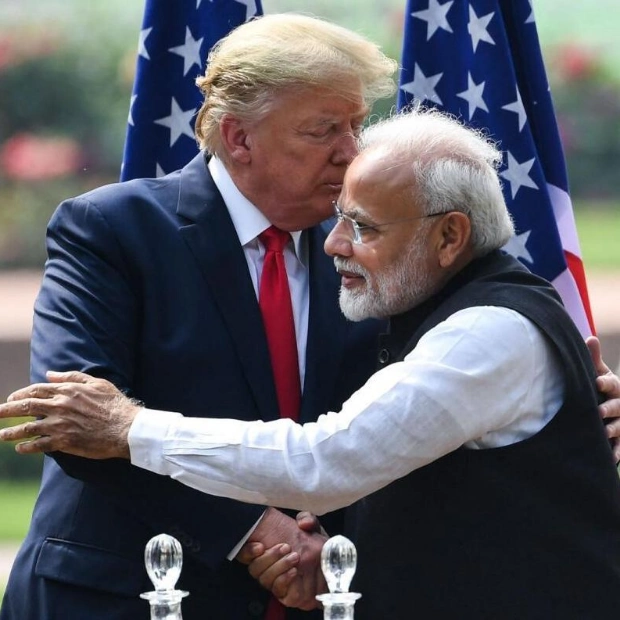In the Holy Trinity Church in Stratford-upon-Avon rests the final resting place of William Shakespeare. And at this very moment, one can only imagine the Bard is turning in his grave like a rotisserie chicken. Similarly, in Heptonstall graveyard, Sylvia Plath is likely spinning, perhaps reciting her famous line from 'The Bell Jar': 'If you expect nothing from somebody you are never disappointed.' What could be causing this unrest from beyond the grave? A recent study in the US has discovered that readers cannot discern the difference between poems penned by renowned poets and those crafted by AI, with the bots mimicking the styles of human creatives.
As if this revelation wasn't unsettling enough, the study indicates that participants tend to favor AI-generated poetry over that of human poets. According to an investigation led by Pittsburgh University postdoctoral researcher Brian Porter and published in Nature Scientific Reports, it appears that readers confuse the complexity of human-written verse with incoherence attributed to AI. Furthermore, readers often underestimate how human-like generative AI can be.
To arrive at these conclusions, researchers utilized five poems each from ten English-language poets, spanning nearly 700 years of literary history. The poets included were William Shakespeare, Geoffrey Chaucer, Walt Whitman, Emily Dickinson, Samuel Butler, Lord Byron, T.S. Eliot, Allen Ginsberg, Sylvia Plath, and Dorothea Lasky—the only living poet on the list. The study instructed OpenAI's ChatGPT 3.5 to generate five poems 'in the style of' each poet. Researchers then selected the first five poems generated, which included lines like 'The air is thick with tension' that Sylvia Plath never wrote.
Two experiments were conducted. In the first, 1,634 participants were randomly assigned to one of the ten poets. They read ten poems: five by the human poet and five by the AI, all in random order. Participants were then asked to identify whether each poem was written by an AI or a human. The results showed that subjects were more likely to believe an AI-generated poem was human-written, while the poems they were least likely to attribute to a human were all written by famous poets.
In the second experiment, a different group of 696 subjects rated the poems according to 14 characteristics including beauty, emotion, rhythm, and originality. The participants were divided randomly into three groups. One group was informed that the poems were written by a human; the second group was told the poems were produced by AI; the third group received no information about the authorship. Participants who knew the poems were AI-generated gave lower ratings compared to those who believed the poems were human-written, regardless of the actual authorship. Those who were not informed about the authorship rated AI-generated poems more favorably than human-written ones.
The researchers suggest that AI poems may be more appealing because they are more straightforward and easier to comprehend. Since AI-generated poems cannot match the complexity of human-authored verse, they excel at 'unambiguously communicating an image, a mood, an emotion, or a theme to non-expert readers of poetry.' The study concludes that participants used shared yet flawed heuristics to differentiate AI from human poetry: the simplicity of AI-generated poems may be easier for non-experts to understand, leading them to prefer AI-generated poetry and misinterpret the complexity of human poems as incoherence generated by AI.
Contrary to earlier studies, people now appear unable to reliably distinguish human-out-of-the-loop AI-generated poetry from human-authored poetry written by well-known poets. The 'more human than human' phenomenon observed in other domains of generative AI is also present in the domain of poetry: non-expert participants are more likely to judge an AI-generated poem to be human-authored than a poem that actually is human-authored.
These findings indicate a significant advancement in the capabilities of generative AI: poetry had previously been one of the few domains in which generative AI models had not reached the level of indistinguishability in human-out-of-the-loop paradigms. Given readers' difficulties in identifying machine-written texts and their 'apparent trust that AI will not generate imitations of human experience,' it may be prudent for governments to pursue AI regulations concerning transparency.
This study suggests that AI poetry, or any art generated by artificial intelligence, can be intriguing to consider in how we appreciate or devalue art. However, it bypasses artistic inspiration, passion, struggle, and ultimately reduces humans to soulless consumers. Regulation is essential to prevent such outcomes. If not regulated, as GPT3.5 Plath might say: 'The darkness creeps upon me, A suffocating cloak. The world outside is cruel and cold, And I’m a fragile, broken yolk.'
Source link: https://www.euronews.com






